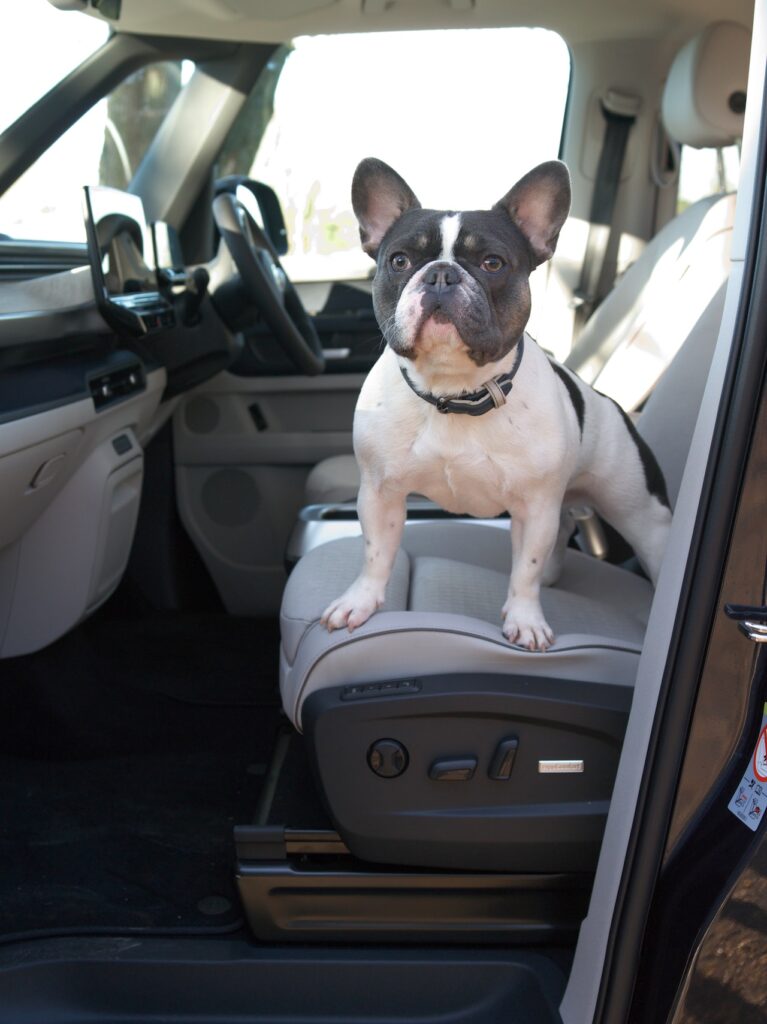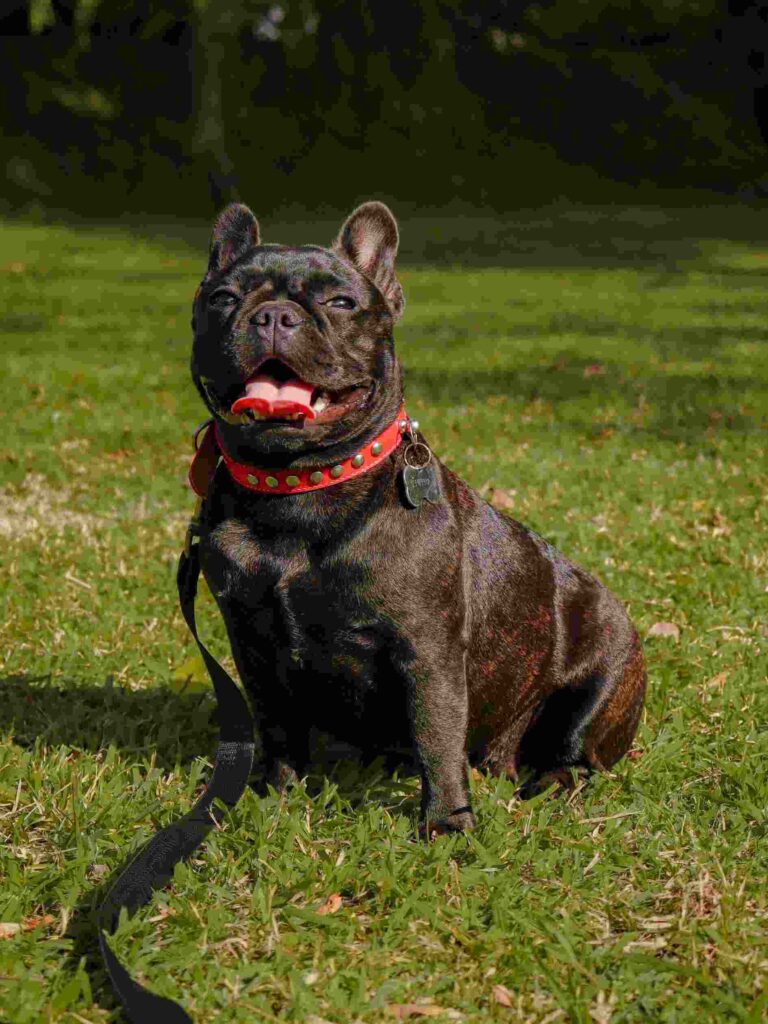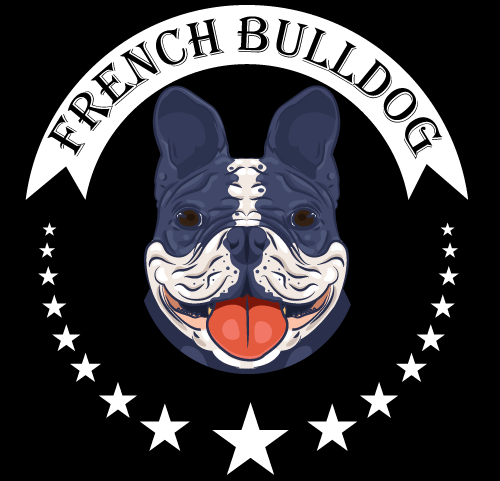Welcome to the whimsical world of French Bulldogs and their quest for service stardom! You might be wondering, “Can a French Bulldog be a service dog?” Well, prepare for a delightful journey as we unravel the tale of these endearing little canines who are determined to prove that being pint-sized doesn’t mean they can’t make a big impact. So, fasten your seatbelts and get ready for a paw-some adventure that will answer the age-old question in the most charming way possible.
Now, if you’re a Frenchie owner, you’re surely familiar with the challenges of tear stains. Wondering how to keep those adorable faces pristine? Our expert recommendations include the best Frenchie tear stain remover products on the market. Don’t let those pesky stains detract from your furry friend’s cuteness factor. We’ve got you covered with top-rated solutions to help your beloved Frenchie look their best. So, as we explore the world of French Bulldogs and their service potential, let’s also ensure their well-being and appearance with the best tear stain remover solutions available.

What is a Service Dog?
A service dog is a highly trained animal that provides help and support to people with disabilities and is a profoundly prepared creature that furnishes help and backing to individuals with incapacities. These dogs are ready to perform initiatives that relieve the effects of the person’s disability. Helps them explore their regular routines with more significant freedom.
Service dogs are utilized by individuals with genuine incapacities. like visual weakness, hearing hindrance, or ailment, for example, epilepsy or diabetes They can correspondingly assist individuals with emotional wellness conditions. For instance, post-horrible pressure issues (PTSD), neurological issues, or profound irregularity issues.
Typical Tasks for Service Dogs
Many tasks are performed by service dogs customized according to the needs of their handlers. Coming up next are a portion of the commonplace undertakings that dogs can be prepared to do:
Retrieving items: Service dogs can recover things like medication, keys, telephones, and assistive gadgets for individuals with restricted portability.
A dog can be trained to open doors, drawers, and cupboards for people with limited flexibility or dexterity.
Turning lights on and off: Service dogs can be trained to turn light switches on or off using their paws or nose. Assists people with versatility or visual impairments.
Providing balance and stability: For people with mobility impairments or individuals who use multi-purpose aids such as wheelchairs or walkers, service dogs can be prepared to provide real assistance and strength when walking or standing.
Guide people: Guide dogs help people who are visually impaired or visually impaired to explore obstacles. Control stops and makes its way.
Alert to sounds: Hearing dogs can be trained to alert people with hearing impairment to important sounds such as doorbells, warnings, alarms, or calling their names.
Medical Alerts: Some service dogs are prepared to detect changes in their overseer’s illness. For example, a drop in glucose levels, the onset of seizures, or hypersensitivity reactions. They can alert their supervisors or even implement a crisis response framework
Deep pressure therapy: Dogs can apply subtle strains with their body or paws. Can provide comfort and calming effects to those experiencing anxiety or tension with tactile overload.
Providing stability during a fall: Service dogs can brace themselves or lie close to their handlers to provide support and safety if they fall or lose balance.
Providing emotional support: Service dogs provide companionship, basic reassurance, and a sense of reassurance. Everything is good for people with mental health conditions, for example, PTSD, nervousness problems, or depression.
Difference Between Emotional Support and Service Dog
Here’s a comparison between emotional support dogs and service dogs:
Purpose and Role:
Emotional Support Dogs: These dogs give solace, friendship, and everyday consolation to individuals with psychological wellness conditions. Their fundamental capability is to diminish the symptoms of strain, feeling of inadequacy, or other profound issues. They provide deep stability and can be a source of comfort for their controllers. Early encouragement canines do not go through specific assignment preparation.
Service Dogs: Service dogs are designed to perform specific tasks that help people with disabilities. Their motivation is to moderate the effects of a person’s handicap and assist them in daily practice. Service dogs are designed to perform tasks directly related to their handler’s disabilities. For example, versatility assistance, guide work for the visually impaired, sound awareness for the hearing impaired, or clinical alerting. They enhance the independence and work of their principals.
Legal status and right of access:
Emotional Support Dogs: Everyday reassurance Creatures (ESAs) are not viewed as service animals under the Americans with Inabilities Act (ADA). Nevertheless, they are unequivocally safeguarded under the Fair Housing Act (FHA) and the Air Carrier Access Act (ACAA). Acknowledges admission to accommodation and air travel with their owners. ESA has no free access and pets are not normally allowed. such as restaurants or shops.
Service Dogs: Service dogs are considered working animals under the ADA. They have legal access and are allowed to go openly to eateries, shops, clinics, and public transport with their controllers. Service dogs are protected by regulation. Organizations and foundations should make reasonable allowances for people with disabilities who rely on assistance dogs.
Training Requirements:
Emotional Support Dogs: There are no special training requirements for daily support dogs. Be that as it may, they should be docile, blended, and non-problematic in open settings. Essential consent preparation is empowering.
Service Dogs: Service dogs go through extensive training to learn specific tasks that help their handlers. They are prepared for compliance, performance, and appropriate behavior in various situations. The preparation cycle regularly includes preparation for specific tasks, socialization, and preparation for duty. Service dogs must show great manners and be openly neutral on their assignments.
Documentation and Certification:
Emotional Support Dogs: People with essential reassurance dogs may be expected to provide documentation from a licensed psychological wellness professional to support their need for a compatible spirited animal. This documentation can be referred to for accommodation or air travel purposes.
Service Dogs: Service dogs do not require any special certification or documentation. Controllers are not legally bound to provide or introduce any recognized evidence or accreditation for dogs under their administration. However, they may decide to give service dogs a separate identification card or vest to help explain their dog’s status publicly.
It is important to note that regulations and guidelines regarding confirmation assurance animals and service dogs may differ depending on the breed or region. It’s worth diving deeper into the specific regulations and guidelines relevant to your area.
Can a French Bulldog be a Service Dog?

Yes, a French Bulldog can be a service dog. Although French Bulldogs are not commonly found in assistance dog work, contrast with breeds such as Labrador Retrievers or Brilliant Retrievers. Their reasonableness as service dogs depend on individual temperament, fitness, and readiness.
Service dogs should be genuinely and intellectually equipped to perform specific tasks to assist people with disabilities. Some initiatives, for example, restore things, maintain balance, or raise awareness of illness. So a French Bulldog can be reasonable for learning and performing. Nevertheless, due to their physical characteristics, such as their reduced size and brachycephalic (short-nosed) life structure, they may have limitations in certain initiatives. which require extensive practical effort or persistence.
It is important to consider that helping dogs prepare requires a high degree of commitment, time, and skill. When determining the feasibility of a French Bulldog as an assistance dog, the overseer’s special needs and required tasks should be diligently surveyed. Talking to an expert service dog trainer or association that is experienced in raising different service dog breeds can provide important guidance in creating this guarantee.
Additionally, it is important to remember that service dog regulations and guidelines may vary depending on the breed or region. It’s worth knowing the specific regulations and requirements in your area regarding service dogs.
How to Train Your French Bulldog for Service
Training a French Bulldog for service work requires dedication, consistency, and a structured training method. Here are some steps to consider when training your French Bulldog for service:
Assess Suitability: Assess your French Bulldog’s temperament, health, and physical abilities to see if they are suitable for service work. Consider their willingness to learn, ability to focus, and any breed-specific limitations.
Define Tasks: Identify specific tasks your French Bulldog will be trained to perform based on your needs or the handler they will be assisting. These tasks may include retrieving objects, opening doors, providing balance assistance, or alerting to certain medical conditions.
Seek Professional Guidance: Enlist the help of a professional service dog trainer experienced in training dogs for service work. They can provide valuable guidance, expertise, and tailored training techniques tailored to your French Bulldog’s needs.
Basic Obedience Training: Start by teaching your French Bulldog basic obedience commands such as sit, stay, come, and heel. These basic commands will form the basis for more advanced training.
Task Training: Introduce the specific tasks your French Bulldog will perform as a service dog. Break each task into small steps. Use positive reinforcement techniques such as treats, praise, and clicker training to encourage and reward desired behaviors.
Socialization: Expose your French Bulldog to different environments, people, and situations so that they become comfortable and well-socialized. This will help them stay focused and calm in various tasks. Which is very important for a service dog.
Distraction Training: Gradually introduce distractions during training to simulate real-life situations. This may include noise, crowded areas, or other animals. Teach your French Bulldog to focus on their tasks despite distractions.
Public Access Training: When your French Bulldog dominates the necessary assignments and orders, open them permanently to public settings. Practice their skills in various situations such as shops, restaurants, and public transport. Make sure they are polite and take orders.
Certification and Documentation: Depending on your area, you may need to obtain a certification or documentation for your French Bulldog as a service dog. Advise nearby regulations and guidelines to realize requirements and guarantee compliance
Remember that training a service dog, regardless of breed, requires patience, consistency, and ongoing reinforcement. Regular exercise, constant socialization, and periodic evaluation of your French Bulldog’s skills are essential to maintain their skills and ensure their effectiveness as a service dog.
Pro Tips for Training Your French Bulldog for Service
Training a French Bulldog for service work can present some unique challenges due to their specific breed characteristics. Here are some pro tips to keep in mind when training your French Bulldog for service:
Start early: Start training your French Bulldog as soon as possible. Puppies have a greater capacity to learn and adapt. Early socialization and training will help shape their behavior and lay a solid foundation for future in-service training.
Positive reinforcement: Utilize uplifting feedback methods, like treats, applause, and play, to remunerate your French Bulldog for wanted ways of behaving. This breed responds well to positive motivation and will be more eager to learn and please you.
Short training sessions: French bulldogs can stand out ranges, so continue to prepare meetings short and centered. Aim for multiple short sessions throughout the day rather than long, tiring sessions. This will help keep them engaged and prevent them from becoming overwhelmed or bored.
Adapt to their energy level: French Bulldogs are known for being relatively low energy compared to other breeds. Tailor your training sessions to their energy levels by incorporating both mental and physical exercises. Find a balance that challenges them without causing fatigue or frustration.
Consider Brachycephalic Challenges: French Bulldogs may have limitations in certain physical activities due to their short noses and compromised breathing. Avoid activities that may stress their respiratory system and focus on activities that are compatible with their physiological limitations.
Emphasize focus and calmness: French Bulldogs can be easily distracted. So prioritize training exercises that enhance their attention and impulse control. Teach them to stay calm and focused even in stressful situations. Practice exercises that help them maintain composure in different situations.
Use interactive toys: Include interactive toys and puzzles in your training routine. This will stimulate your French Bulldog mentally and provide an outlet for their intelligence. Emotional stimulation is very important for this breed and can help prevent boredom-related behavioral problems.
Get breed-specific training advice: French bulldogs have specific needs and challenges. Consider seeking the advice of a trainer or organization with experience training this species for service work. They can provide useful techniques and guidance based on their expertise with French Bulldogs.
Regular Health Checkups: French Bulldogs are prone to some health problems including respiratory problems and joint conditions. Make sure your French Bulldog receives regular check-ups and veterinary care to monitor their overall health and well-being. Address any health concerns promptly to avoid compromising the ability to perform service tasks.
Common problems with French Bulldogs as service dogs:
While French Bulldogs can make wonderful companions and service dogs, there are some common challenges associated with this breed that may arise when training them for service work:
Heat Sensitivity: French Bulldogs are susceptible to heat exhaustion and overheating due to their brachycephalic (short-nosed) anatomy and compromised respiratory systems. It’s essential to carefully monitor their temperature and ensure they have access to shade, water, and cool environments, especially during hot weather or strenuous activities.
Physical Limitations: French Bulldogs may have physical limitations due to their compact size and muscular structure. Tasks that require significant physical exertion or endurance, such as pulling or bracing, may be challenging for them. It’s important to consider their physical capabilities when selecting and training them for specific service tasks.
Distraction and Focus: French Bulldogs can be easily distracted, which may impact their ability to stay focused on their tasks in stimulating environments. Their curious and social nature may make it harder for them to maintain concentration during training or when performing tasks in public. Consistent training and exposure to various distractions can help improve their focus.
Stubbornness: French Bulldogs can be independent and stubborn at times. They may exhibit a “what’s in it for me?” attitude during training sessions. Patience, positive reinforcement, and finding training methods that resonate with their personality will be crucial to overcoming any stubborn tendencies.
Separation Anxiety: French Bulldogs are known to form strong bonds with their owners and can experience separation anxiety when apart. This may require additional training and management strategies to ensure their well-being when their handler is not present. Building gradual independence and providing mental stimulation during alone time can help alleviate separation anxiety.
Brachycephalic-related Health Issues: French Bulldogs are more inclined to specific medical problems because of their exceptional life systems. These can incorporate respiratory issues, sensitivities, eye issues, and skin conditions. Standard veterinary consideration, observing their well-being, and dealing with any fundamental circumstances are crucial to guarantee their general prosperity and their capacity to perform administration errands.
It’s important to note that while French Bulldogs may face these challenges, individual dogs can vary. Some French Bulldogs may excel as service dogs with proper training, management, and consideration of their breed-specific traits and limitations. Working closely with a professional service dog trainer who has experience with French Bulldogs can provide valuable guidance in addressing these common challenges and maximizing their potential as service dogs.
How much does a French Bulldog cost?

The expense of a French Bulldog can vacillate in light of a few factors like the reproducer’s area, region, bloodline, and the idea of the dog. Overall, you can expect to pay anywhere from $1,500 to $5,000 or something for a French Bulldog puppy. However, it is important to remember that dogs with significant bloodlines, those that show potential, or attractive coloring can cost more.
Despite the inherent purchase costs, it is important to think about ongoing costs such as veterinary considerations, vaccinations, fixing/fixing, food, preparation, grooming, and general maintenance. These costs can accumulate over the dog’s lifetime.
It is worth exploring carefully, to find a legitimate breeder who is focused on the well-being and prosperity of their dogs. When choosing to bring a French Bulldog into your home, factors past cost are determined to be considered. Another option to consider is rescuing or adopting a French Bulldog from a safe house or breed-specific rescue association. Because it can give a dog a caring home for less than a fortune, and often with lower adoption costs.
Caring for a French Bulldog
Caring for a French Bulldog involves proper nutrition, exercise, grooming, health care, and attention to ensure their well-being. Here are some essential aspects of French Bulldog care:
Nutrition: Feed your French Bulldog a balanced and nutritious diet appropriate for their age, size, and activity level. High-quality dog food formulated for small breeds or specifically for French Bulldogs. Consult your veterinarian for guidance on feeding amount and frequency.
Exercise: The French Bulldog is generally a low to medium-strength breed. But they still need regular exercise to maintain a healthy weight and overall well-being. Engage in daily walks, play sessions, or interactive activities that are appropriate for their physical abilities. Be careful not to overexert them in hot weather due to their heat sensitivity.
Grooming: French Bulldogs have short coats that require minimal grooming. Regular brushing can help remove loose hair and keep their coat in good condition. Focus on cleaning their facial wrinkles to prevent moisture build-up and potential skin problems. Also, trim their nails routinely, clean their ears, and clean their teeth to keep up with great oral cleanliness.
Health Care: Schedule regular veterinary check-ups to monitor your French Bulldog’s health and address any potential problems early. Vaccinations, deworming, flea and tick prevention, and heartworm prevention should be part of their routine health care. Be aware of their brachycephalic-related health concerns and consult with your veterinarian about specific care recommendations for the breed.
Temperature Control: French Bulldogs are sensitive to extremes of temperature, especially heat. Keep them in a cool and well-ventilated climate, especially during warm weather. Try not to leave them outside for extended periods at high temperatures. Never leave them in the left car, as they are vulnerable to heatstroke.
Socialization and Emotional Stimulation: French Bulldogs thrive on human companionship and enjoy social interaction. Regular socialization with other dogs, people, and different environments is essential for their development and well-being. Provide them with mental stimulation with interactive toys, puzzle feeders, and training exercises to keep them engaged and prevent boredom.
Attention and Affection: French Bulldogs are affectionate and love to be part of the family. Give them attention, love, and companionship to meet their emotional needs. Daily interaction, playtime, and positive reinforcement training will strengthen the bond between you and your French Bulldog.
conclusion
After all, service dogs take an essential part in helping people with disabilities. Their preparation and care are of utmost importance. Whether it is a French Bulldog or any other variety. Choosing and preparing a service dog requires careful thought.
Service dogs go through thorough training to perform specific tasks. which helps disabled people to have a more independent existence. They are respectful, loyal, and ready to zero in on their work, in addition to mixing and versatile in different situations.
When considering a service dog, it is fundamental to survey the reasonableness of the variety and the unit’s needs for the specific task. Although French Bulldogs may not be as natural as helping dogs with tasks, unlike some other breeds. Their reasonableness may depend on their temperament, fitness, and preparation skills.
FAQs
1. What dog breeds Cannot be service dogs?
Some dog breeds may not be appropriate for administration canine work because of different reasons, like actual limits, personality, or breed-explicit qualities. Instances of breeds that might confront difficulties in becoming help canines incorporate little toy breeds like Chihuahuas, as well as specific varieties are known for animosities or high prey drives, such as Akitas or Dalmatians. It’s important to consider individual temperament and training potential rather than relying solely on breed.
2. Are French Bulldogs good for anxiety and depression?
Yes, French Bulldogs can be good companions for anxiety and depression due to their affectionate and empathetic nature. Their friendly demeanor and willingness to provide comfort and support can help alleviate stress and provide emotional support to their owners, making them suitable for emotional support roles. However, individual temperament may vary.
3. How hard is it to train a dog to be a service dog?
Preparing a canine to be a help canine can be testing yet fulfilling. It requires consistency, tolerance, and devotion from both the canine proprietor and the mentor. The interaction includes specific preparation to perform errands that help people with inabilities. Success depends on the dog’s breed, temperament, and willingness to learn.
see another content : why can’t French bulldogs swim

